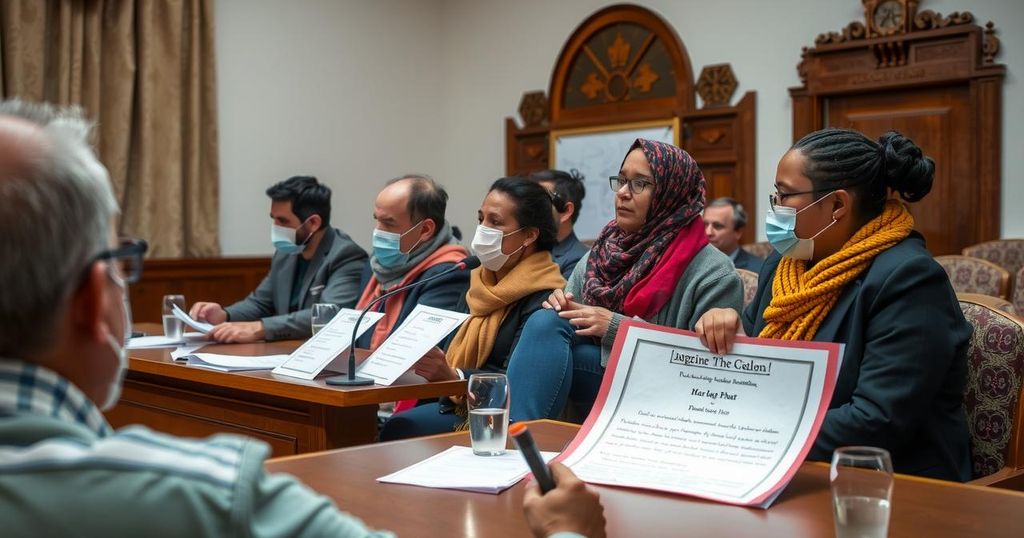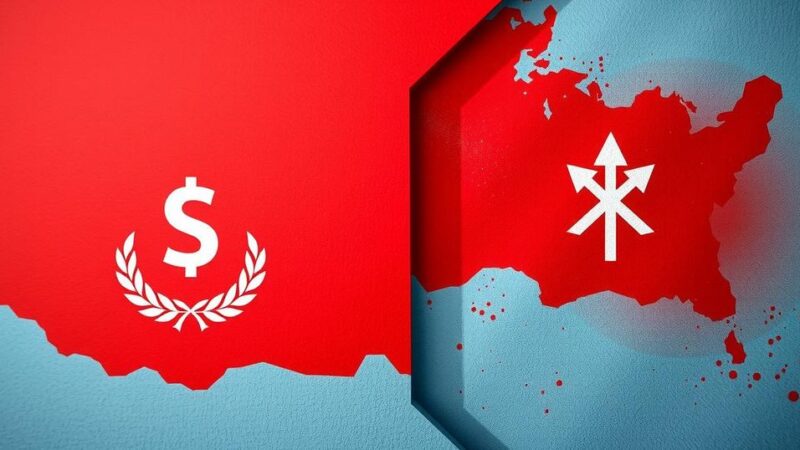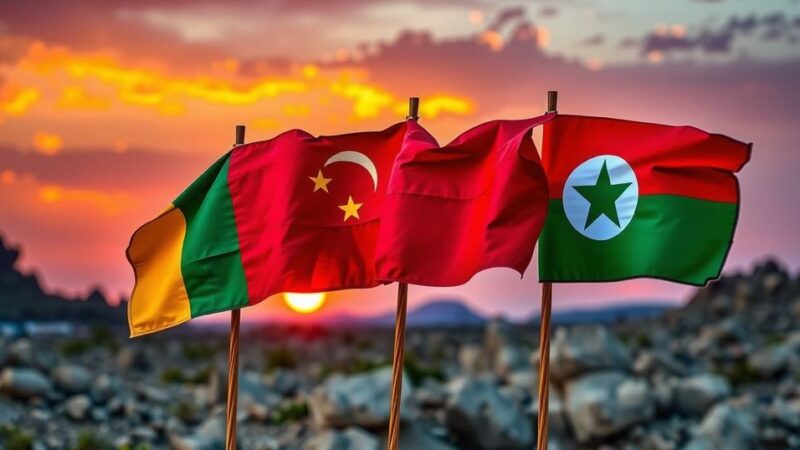Four activists advocating for earthquake victims in Morocco face defamation charges, including Said Ait Mahdi, who remains in custody. Their accusations stem from social media critiques of the government’s disaster response. The earthquake in September 2023 caused significant loss of life and property, prompting calls for swift reconstruction from the affected communities. Moroccan authorities have begun issuing reconstruction permits and providing financial resources to aid recovery efforts.
On Monday, four activists who have been advocating for the victims of the catastrophic 2023 Morocco earthquake appeared in court facing various charges, primarily defamation. The head of the Al Haouz Earthquake Victims Coordination, Said Ait Mahdi, remains in custody amid accusations of defaming public officials and disseminating false information. The charges originated from critical social media posts concerning the government’s disaster response. The remaining three activists are currently free but also face similar charges related to insulting public officials.
The earthquake, which struck in September 2023, claimed the lives of nearly 3,000 individuals and destroyed tens of thousands of residential structures in the High Atlas mountains. Ait Mahdi’s organization has been vocal in demanding expedited reconstruction efforts to assist the affected families. In response, Moroccan authorities have successfully issued over 57,000 reconstruction permits and allocated an allocation of $740 million directed towards rebuilding efforts.
The situation regarding the activists highlights a broader struggle concerning governmental accountability and disaster response mechanisms in Morocco. The High Atlas region, which is often vulnerable to seismic activity, faced unprecedented destruction after the recent earthquake. Public response has varied, with some citizens advocating for swift governmental action to address the devastation while others face legal repercussions for expressing dissent regarding governmental performance in the aftermath. This conflict underscores the challenges faced by citizens in advocating for their rights in a post-disaster scenario.
In conclusion, the court proceedings involving the four activists underscore the delicate balance between freedom of expression and governmental accountability in Morocco. The case raises important questions regarding the right to criticize official responses to disasters, as well as the implications for civil society in the country. As the government moves forward with reconstruction efforts, the outcomes of these legal challenges may influence future advocacy and disaster response protocols.
Original Source: newscentral.africa






